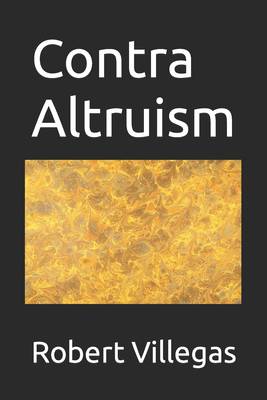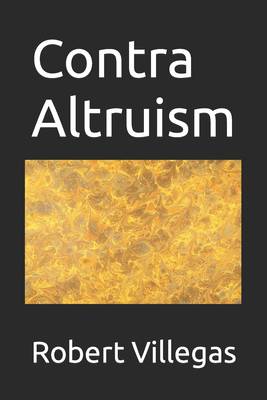
- Afhalen na 1 uur in een winkel met voorraad
- Gratis thuislevering in België vanaf € 30
- Ruim aanbod met 7 miljoen producten
- Afhalen na 1 uur in een winkel met voorraad
- Gratis thuislevering in België vanaf € 30
- Ruim aanbod met 7 miljoen producten
Zoeken
Omschrijving
Many people think the best way to make a difference in society is to do charitable things for others. This book argues that there is another aspect of altruism (sacrifice for the sake of society) that connects it to collectivism, human sacrifice, re-distribution, and mass murder. All socialist systems, including communism, and welfare-statism, are based upon altruism (taking from the productive and giving to the poor). The question then, for altruism, is not about how many people benefit but, rather, how many people are needlessly exploited? Additionally important, is not whether altruism can help some people, but whether hurting some people in order to help others is moral by any means. Another important issue is whether taking doesn't restrict the production of goods, the taking of which actually harms more people overall than does the giving. Finally, are goods trades more productive, and helpful, if they are engaged in voluntarily without moral force or government force? How much of charitable giving helps the people it is intended to help? If the goal is to help people, Is there a better way to help people, such as by giving them a job and the pride that come from their taking care of themselves? Are capitalists actually doing more to help people by hiring them? How many people are spared poverty by choosing to be productive? This booklet includes eight chapters from the book entitled The History of Altruism. These chapters include writing about Altruism as it exists in the modern world and is intended as a primer to the previous book which is still available at https: //amzn.to/2IMf9n7.
Specificaties
Betrokkenen
- Auteur(s):
- Uitgeverij:
Inhoud
- Aantal bladzijden:
- 158
- Taal:
- Engels
- Reeks:
- Reeksnummer:
- nr. 5
Eigenschappen
- Productcode (EAN):
- 9781719321907
- Verschijningsdatum:
- 17/05/2018
- Uitvoering:
- Paperback
- Formaat:
- Trade paperback (VS)
- Afmetingen:
- 152 mm x 229 mm
- Gewicht:
- 217 g

Alleen bij Standaard Boekhandel
+ 31 punten op je klantenkaart van Standaard Boekhandel
Beoordelingen
We publiceren alleen reviews die voldoen aan de voorwaarden voor reviews. Bekijk onze voorwaarden voor reviews.











